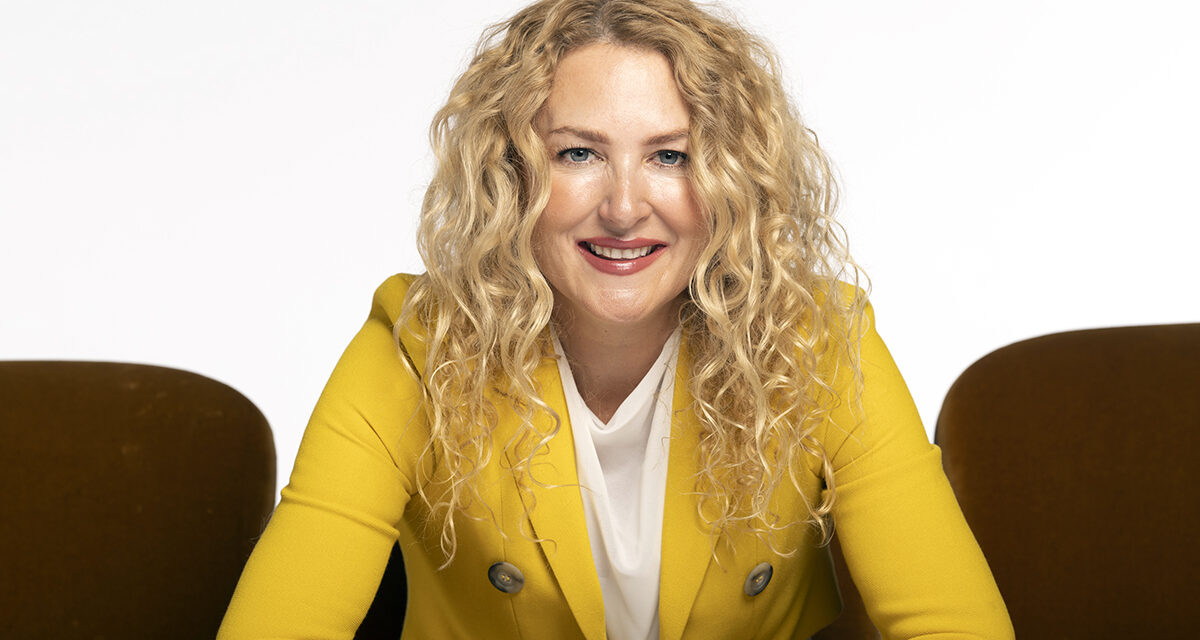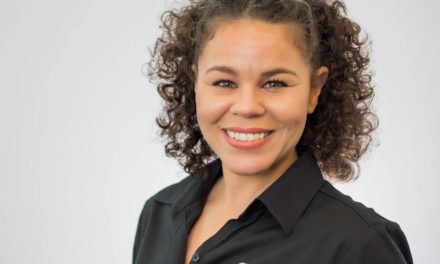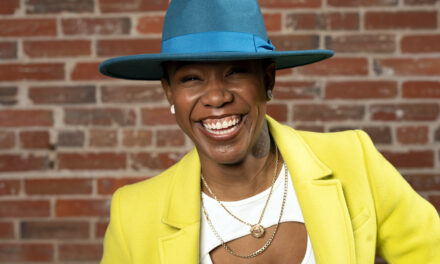With a, melodious singing voice that can fill any auditorium, Kate Mulligan built her career around music. Now, as the first-ever executive director of the Capital Philharmonic, she plans to make classical music more accessible to the community of Trenton.
Throughout her life, Kate Mulligan has been propelled by twin engines: music and horses.
She was barely talking when she discovered her singing voice, which is now a smooth, buttery instrument that she can weave through jazz or opera or just about any style of music Mulligan feels like belting out in the moment. From birth, music was in her blood. “When my parents met, my mom was singing in a band and my dad was playing the trombone. My dad was also a music teacher and a composer throughout my entire life. His side of the family were all musicians and played brass instruments,” she says. “So, singing for me is like breathing. It isn’t something I have to do in front of other people. It doesn’t have to be a performance. It is such an ingrained part of me that I can’t imagine my life without it.”
Throughout her young life, Mulligan studied voice, piano, and trombone. The family band consisted of flute, tuba, saxophone, trumpet, and trombone, with grandparents, parents, and cousins all participating. “I performed in choirs and as a soloist, singing both classical and jazz repertoire,” she recalls.
Her passion for horses and riding started a bit later, but Mulligan says she was “horse-obsessed” by the time she was 8. (“Every square inch of my wall in my room was covered in pictures of horses.”) Her parents thought she’d grow out of the phase, but instead it evolved into a desire to ride and be near horses as often as possible.
Mulligan grew up in Bernardsville, NJ, where her parents struggled to make ends meet. In fact, her mom quit singing jazz and took a job working in her grandmother’s sewing shop. That left very little money to spend on Mulligan’s riding lessons.
So, at a very young age, Mulligan became both hard-working and entrepreneurial, discovering ways to make her own money to pay to ride horses. At 12 years old, she was running a dog-walking business when she saw an ad in the paper for a job at a barn. “The woman I talked to probably thought I would last one day working there because they had me cleaning stalls and carrying water buckets in the freezing cold,” Mulligan recalls. “But I was so dedicated. I worked every single weekend. I worked after school and on snow days. I just needed to be around horses.”
Mulligan’s combined passion and work ethic became the metronome throughout her life. Now, at 46 years old, she is taking the reins at Capital Philharmonic of New Jersey as the first executive director to lead the Trenton symphony orchestra, which was founded in 2013. “The orchestra had reached a point where they were ready to grow and take the entire organization to the next level. I think it’s the right time for somebody like me, who has a great deal of experience and ideas about what this orchestra can do next and offer a vision that can expand statewide. It’s time to show New Jersey what this music can do for a city like Trenton.”
I would love to find a way for classical music to be more accessible, especially to people in the community of Trenton and the surrounding area where it can seem like something very foreign to kids and their families. I would like them to see that and think, ‘There’s a place for me here.’
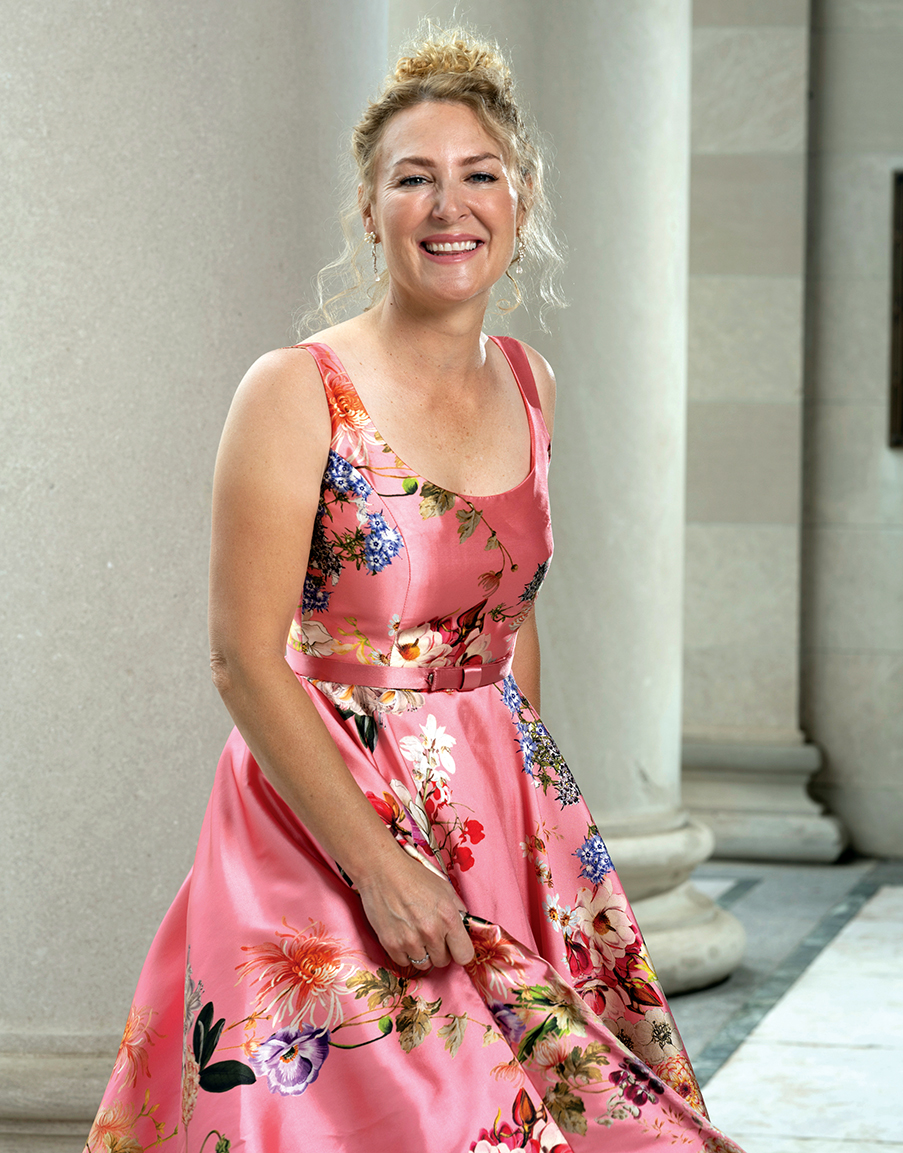

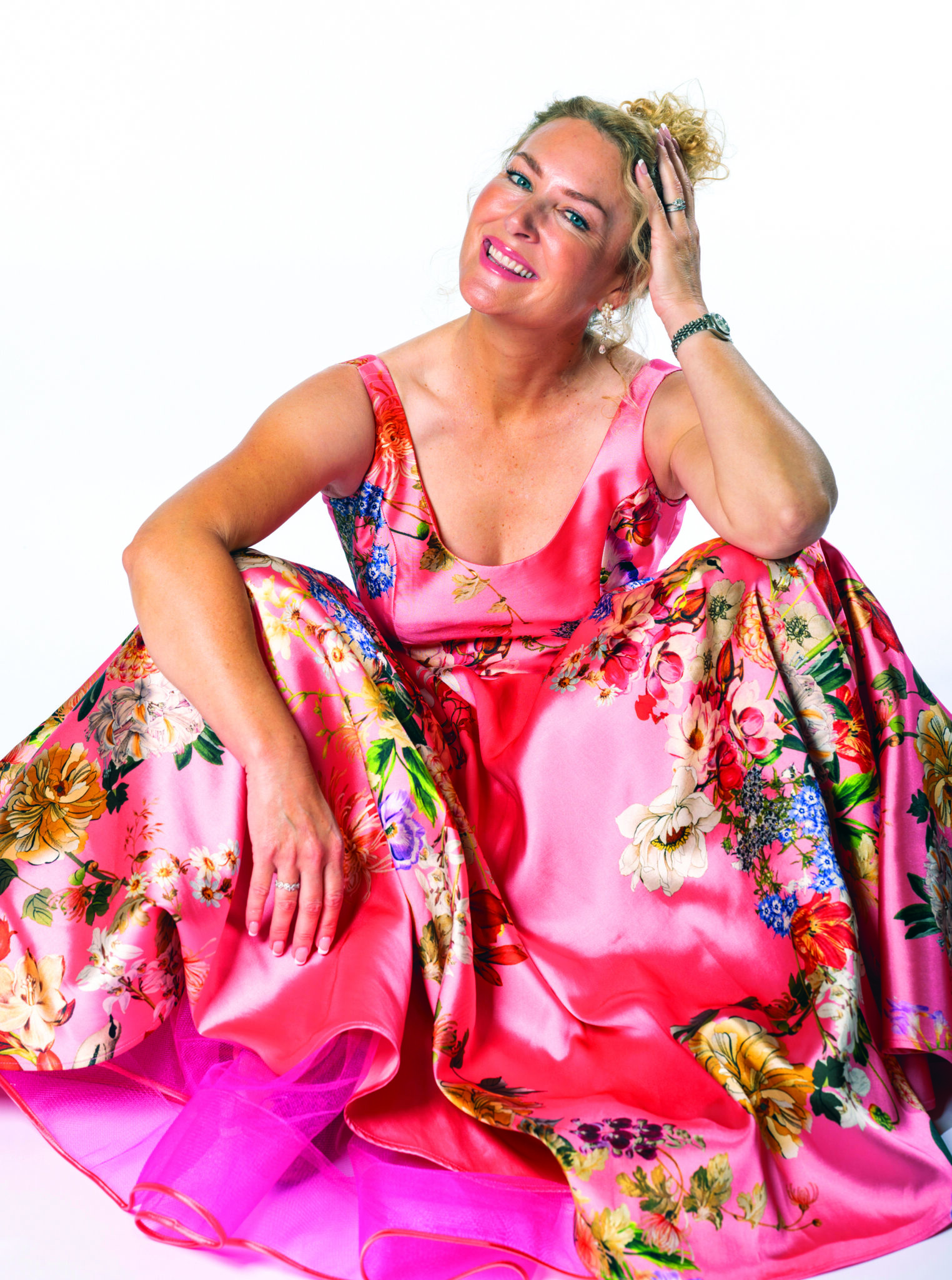
Music for Everyone
Having received her B.A. from Westminster Choir College at Rider University and an M.B.A. from Rutgers University in nonprofit arts management and marketing, Mulligan was well poised for a career running organizations, including Princeton Pro Musica and Trenton Children’s Chorus. She came on to lead the Capital Philharmonic in March with grand plans for what it could mean to the Trenton community.
When the Capital Philharmonic was originally established, it aimed to fill a void created by the demise of established orchestras on both sides of the Delaware River. The refurbishment of War Memorial Patriots Theater in Trenton presented an opportunity for the Philharmonic to culturally enhance New Jersey’s capital city and become a driving force in the downtown revitalization. But lack of funding and the global pandemic prevented it from gaining momentum. Capital Philharmonic wrote and received a grant from the State of New Jersey to hire an executive director, and the board of directors found in Mulligan the skill set and the drive to help them thrive. “They realized that to get to the next level, they were going to need help. It is a tremendous undertaking with the venues and the ticket sales and managing the orchestra and the union,” she says. “The timing was right for me because I spent the last 4 years working at Trenton Children’s Chorus, and the last year and a half of that work was spent making a merger happen with Trenton Music Makers.”
Mulligan was looking for a new position, ideally one that provided continuity from her previous role. “Now I can continue working with school-age kids and the wider Trenton community by helping the orchestra expand its reach and show children, young adults, and established community members the joy of music.”
Mulligan is focused on the creation of outreach programs in which kids from Trenton can learn about music, interact with orchestra players to explore new sounds, and attend free concerts with their families, “so there’s no barrier toward participation. Unfortunately, I’ve learned over the years that there are often many barriers to classical music. That is one of my main concerns—where’s the future of this music?” Mulligan says. “It is important that we get the chance to hear high-quality classical music. We must remove financial obstacles and even the hurdle of people feeling like, ‘That’s not for me—I’m not familiar with this music or it just feels like something that is not part of my culture.’”
In addition to offering programs in Trenton schools, Mulligan is also working to partner with local businesses and restaurants to garner interest and personal investment in the Capital Philharmonic. Although the orchestra’s main home—Patriot’s Theatre at the War Memorial—holds 1,850 people, she is also planning small concerts in public spaces so the orchestra can go where the people are and become integrated in their lives. For example, in June, the Capital Philharmonic performed a concert at South Hunterdon Regional High School to benefit Lambertville residents affected by the flooding from last fall’s Hurricane Ida. On July 30, the orchestra will perform a free concert at St. Mary Byzantine Catholic Church in which all proceeds from donations went to Ukrainian relief funds.
In addition to making the music more accessible, Mulligan says it’s also important to make sure the orchestra itself is inclusive and diverse and looks like the community for which it is performing. “It is so crucial that there are people of color who are on the stage,” she explains. “For kids to aspire to play this music, they must see people singing and playing the instruments who look like them.”
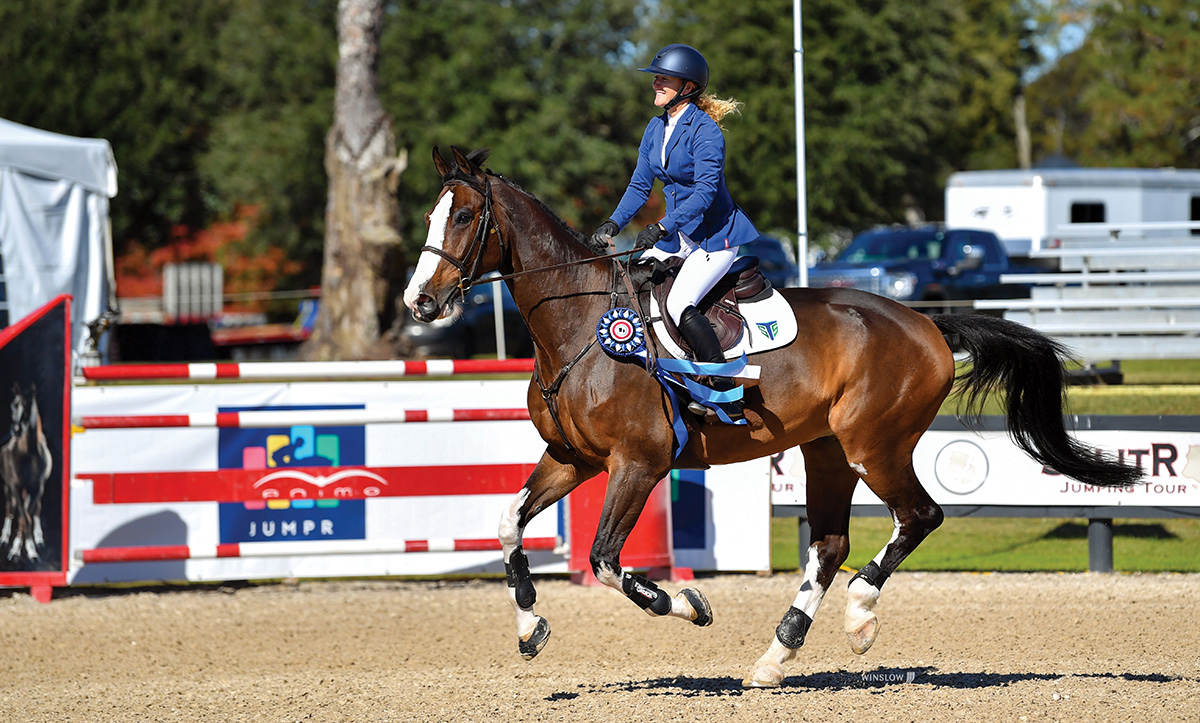
The whole idea of Trenton Children’s Chorus is that kids from schools all around the area can leave behind whatever happened to them during the day and sometimes whatever is going on at home. They can just be themselves.
Leap of Faith
Mulligan, who lives on a 70-acre farm in Frenchtown, NJ with her husband, Mark, and her two daughters, 12-year-old Ainsley and 9-year-old Esme, is also thriving as an award-winning equestrian jumper. She regularly competes in events like the Devon Horse Show and the Pennsylvania National Horse Show, which only take the top 30 amateur show jumpers in the country. But her journey to riding at such a high level has not been a straight line to success.
Prior to having children, even though she had become an accomplished rider and show jumper, her anxiety was commandeering her ability to ride with intention and clarity. “I put all this pressure on myself, and I always wanted to win. Going to horse shows is superexpensive, so I carried this overwhelming fear of disappointing people and the sense that I’m spending all this money, and what if I fail,” Mulligan recalls. “I would go into the show ring, and I would black out—I would literally not be able to see. I would practically lose consciousness while I was on a horse. I would forget where I was going. And I would fall off almost every single time. That is how bad my anxiety was.”
However, when Mulligan was pregnant with Ainsley, she committed herself to having a completely natural, drug-free delivery. She took classes in HypnoBirthing, a concept based on a book by Marie Mongan, originally published in 1989. HypnoBirthing aims to help women cope with any fear or anxiety around giving birth. The practice utilizes various relaxation and self-hypnosis techniques to help calm the body before and during labor and birth. “I practiced every day. It takes so much focus and discipline, but I was able to avoid spending the entire time absorbed in my own mind—it was almost like having like an out-of-body experience. The fact that it worked when I had the baby gave me so much faith that my brain was so much more powerful than I’d ever given it credit for.”
Within a year of giving birth, Mulligan started riding again, this time channeling everything she’d learned from HypnoBirthing into her riding. Without the anxiety and fear of failure, she was able to compete at a much higher level. “I sort of became this whole new person. I remember somebody came up to me and said, ‘I gotta ask, what happened to you? You used to be so nervous, and you were terrified when you would go in the ring. Now here you are like it’s absolutely nothing. You’re totally calm, and you’re winning.’ That’s when it really hit me how bad it had been.”
Mulligan had one other secret weapon—a horse named Aconto, a 5-year-old she bought after Ainsley was born. “He was the horse of a lifetime. He was fantastic, and we really grew together. I got to show him at Devon and the Grand Prix, which was really gratifying because I had brought him along from a very young horse.”
But when Aconto turned 11, his behavior changed. “He became unsound, and we brought him to a hospital in Florida where we were competing, and they gave me the bad news that he had severe arthritis impinging on his spinal cord. All at once I found that not only was he never going to be ridden again, but we couldn’t save him. It was devastating,” Mulligan says. “I actually took a 3-year break from riding after that, and I wasn’t sure that I would ever ride again.”
It was her daughter Esme, who was 6 at the time, who got Mulligan back on the horse. She kept bugging me, saying, ‘Mom, I really want you to come to the barn with me. I want us to ride together.’”
Last November, Mulligan bought a horse named Charlie off the Internet. “He was in Germany, and I had never ridden him, but I just loved his expression, and he just seemed like a good guy. I didn’t even know if I wanted to ride anymore. I didn’t have a trainer. I didn’t really have a plan. I just said, I’m gonna give this one more shot and see what happens, and he has turned out to be another amazing animal. Lightning doesn’t strike twice, but somehow, I’ve got my second horse of a lifetime.”
That, with an impermeable mindset that even the longest odds can’t keep her from reaching the highest levels of success,
bodes well for her riding career and for the Capital Philharmonic.

